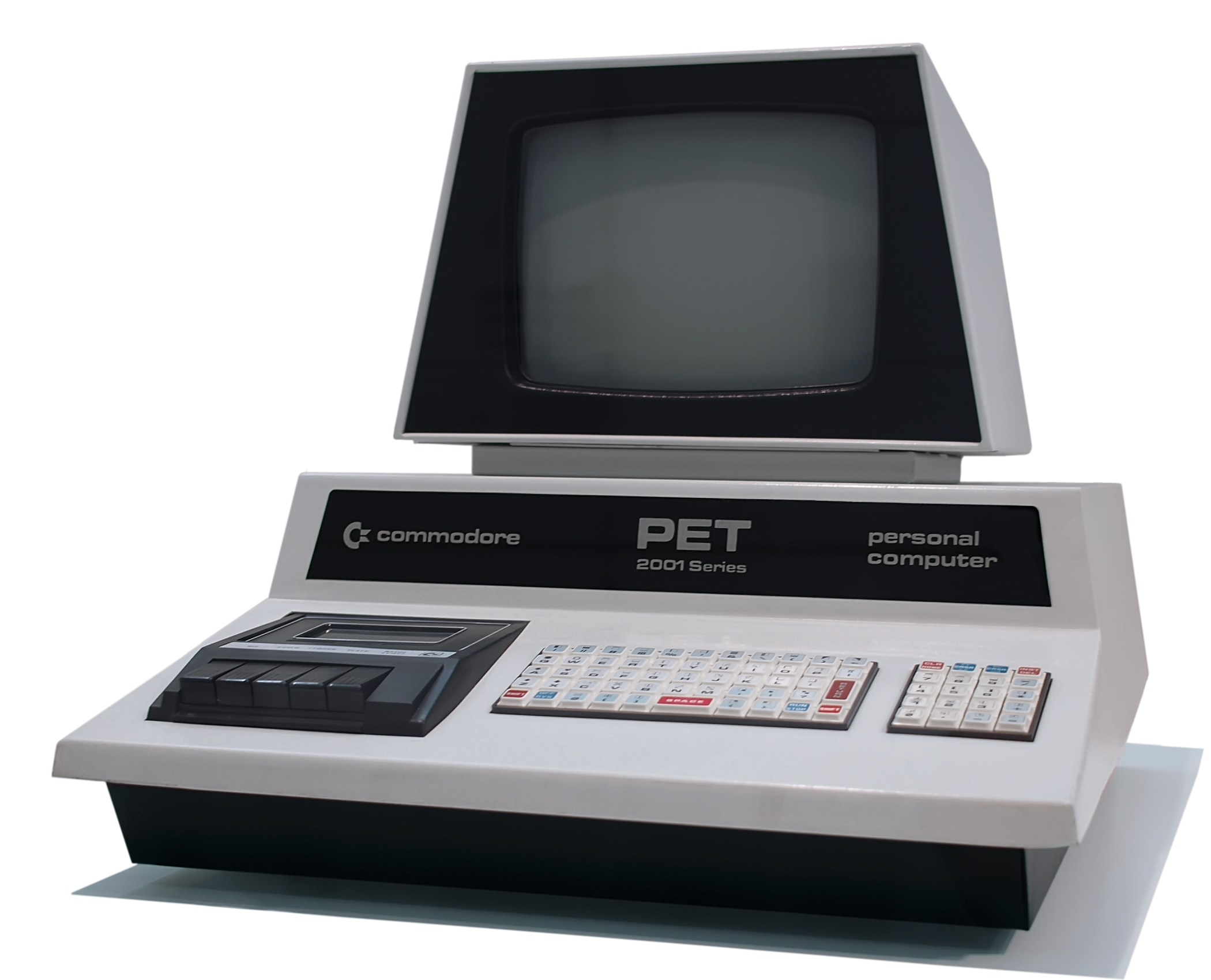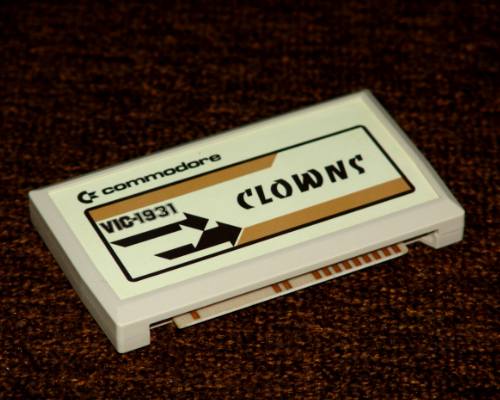|
Toronto PET Users Group
The Toronto PET Users Group is one of the world's oldest extant computer user groups, and was among the very largest. The non-profit group is based in Toronto but has an international membership. It supports nearly all Commodore computers, including the PET, VIC-20, C64, C128, Plus/4, C16, C65, and Amiga, including the COMAL, CP/M and GEOS environments. TPUG is noted for its ties with Commodore Canada, its extensive and widely distributed software library, and its association with prominent computing pioneers such as Jim Butterfield, Brad Templeton, Karl Hildon, and Steve Punter. History TPUG was founded in 1978 or 1979 by Lyman Duggan, a Toronto-area resident who had recently bought a Commodore PET 2001 but could not find an existing user group with any PET owners. At the urging of local author and programmer Jim Butterfield, Duggan organized his own PET group—then known as CLUB 2001—and advertised it by word of mouth. The first meeting was held in the party r ... [...More Info...] [...Related Items...] OR: [Wikipedia] [Google] [Baidu] |
Users' Group
A users' group (also user's group or user group) is a type of club focused on the use of a particular technology, usually (but not always) computer-related. Overview Users' groups started in the early days of mainframe computers, as a way to share sometimes hard-won knowledge and useful software, usually written by end users independently of the vendor-supplied programming efforts. SHARE, a user group originated by aerospace industry corporate users of IBM mainframe computers, was founded in 1955 and is the oldest computer user group still active. DECUS, the DEC User's Society, was founded in 1961 and its descendant organization, Connect Worldwide, still operates. The Computer Measurement Group (CMG) was founded in 1974 by systems professionals with a common interest in (mainframe) capacity management, and continues today with a much broader mission. The first UNIX users' group organized in 1978. Users' groups began to proliferate with the microcomputer revolution of the la ... [...More Info...] [...Related Items...] OR: [Wikipedia] [Google] [Baidu] |
Commodore Canada
Commodore International (other names include Commodore International Limited) was an American home computer and electronics manufacturer founded by Jack Tramiel. Commodore International (CI), along with its subsidiary Commodore Business Machines (CBM), was a significant participant in the development of the home personal computer industry in the 1970s, 1980s and early 1990s. The company developed and marketed the world's best-selling computer, the Commodore 64 (1982), and released its Amiga computer line in July 1985. With quarterly sales ending 1983 of $ (equivalent to $ in ), Commodore was one of the world's largest personal computer manufacturers. History Founding and early years Commodore co-founders Jack Tramiel and Manfred Kapp met in the early 1950s while both employed by the Ace Typewriter Repair Company in New York City. In 1954, they formed a partnership to sell used and reconditioned typewriters and used their profits to purchase the Singer Typewriter Company. ... [...More Info...] [...Related Items...] OR: [Wikipedia] [Google] [Baidu] |
The TORPET
''The TORPET'' was a Toronto-based computer magazine directed at users of Commodore's 8-bit home computers. Publication history Though named for and associated with the Toronto PET Users Group (TPUG), the magazine was published independently of the club as a commercial enterprise with paid writers. Twenty-eight issues were produced for TPUG from November 1980 to August 1984. In 1984 ''TORPET'''s owner and editor, Bruce Beach, dissociated the publication from TPUG and relaunched it as an oceanography journal, backronymming its name to ''Today's Oceanographic Research Program for Education & Training''. TPUG launched its own computing journal, ''TPUG Magazine'', in February 1984. A 320-page anthology of ''The TORPET'''s most popular articles, ''The Best of The TORPET Plus More for the Commodore 64 and the VIC-20'', was published in 1984 by Copp Clark Pitman. It featured type-in listings for over a thousand freeware programs, articles and cartoon strips teaching BASIC and ... [...More Info...] [...Related Items...] OR: [Wikipedia] [Google] [Baidu] |
The Transactor
''The Transactor'' was a computer magazine directed at users of Commodore home computers. In contrast to other Commodore-focused publications such as ''Commodore Magazine'' and ''COMPUTE!'s Gazette'', ''The Transactor'''s popularity was based on its coverage of deep technical issues and hardware hacking. ''INFO'' called ''The Transactor'' "the undeniable authority" on "Commodore programming and hardware information". Publication history The magazine was launched on 30 April 1978 as the official international bulletin of Commodore Canada to PET user groups. The early issues were low-tech mimeographed productions with no non-Commodore advertising and a roughly monthly release schedule. Despite its association with Commodore, the magazine earned a reputation for being honest and upfront about bugs and faults in Commodore's products. In September 1982 the magazine was relaunched as a fully independent, bimonthly, advertiser-supported publication. From this point the magazine became ... [...More Info...] [...Related Items...] OR: [Wikipedia] [Google] [Baidu] |
Freeware
Freeware is software, most often proprietary, that is distributed at no monetary cost to the end user. There is no agreed-upon set of rights, license, or EULA that defines ''freeware'' unambiguously; every publisher defines its own rules for the freeware it offers. For instance, modification, redistribution by third parties, and reverse engineering are permitted by some publishers but prohibited by others. Unlike with free and open-source software, which are also often distributed free of charge, the source code for freeware is typically not made available. Freeware may be intended to benefit its producer by, for example, encouraging sales of a more capable version, as in the freemium and shareware business models. History The term ''freeware'' was coined in 1982 by Andrew Fluegelman, who wanted to sell PC-Talk, the communications application he had created, outside of commercial distribution channels. Fluegelman distributed the program via a process now termed '' shareware''. ... [...More Info...] [...Related Items...] OR: [Wikipedia] [Google] [Baidu] |
Commodore Amiga
Amiga is a family of personal computers introduced by Commodore in 1985. The original model is one of a number of mid-1980s computers with 16- or 32-bit processors, 256 KB or more of RAM, mouse-based GUIs, and significantly improved graphics and audio compared to previous 8-bit systems. This includes the Atari ST—released earlier the same year—as well as the Macintosh and Acorn Archimedes. Based on the Motorola 68000 microprocessor, the Amiga differs from its contemporaries through the inclusion of custom hardware to accelerate graphics and sound, including sprites and a blitter, and a pre-emptive multitasking operating system called AmigaOS. The Amiga 1000 was released in July 1985, but production problems kept it from becoming widely available until early 1986. The best-selling model, the Amiga 500, was introduced in 1987 along with the more expandable Amiga 2000. The Amiga 3000 was introduced in 1990, followed by the Amiga 500 Plus, and Amiga 600 in March 1992. ... [...More Info...] [...Related Items...] OR: [Wikipedia] [Google] [Baidu] |
VIC-20
The VIC-20 (known as the VC-20 in Germany and the VIC-1001 in Japan) is an 8-bit home computer that was sold by Commodore Business Machines. The VIC-20 was announced in 1980, roughly three years after Commodore's first personal computer, the PET. The VIC-20 was the first computer of any description to sell one million units. It was described as "one of the first anti-spectatorial, non-esoteric computers by design...no longer relegated to hobbyist/enthusiasts or those with money, the computer Commodore developed was the computer of the future." The VIC-20 was called ''VC-20'' in Germany because the pronunciation of ''VIC'' with a German accent sounds like the German expletives "fick" or "wichsen". The term ''VC'' was marketed as though it were an abbreviation of ''VolksComputer'' ("people's computer," similar to Volkswagen and Volksempfänger). History Origin and marketing The VIC-20 was intended to be more economical than the PET computer. It was equipped with 5 KB of st ... [...More Info...] [...Related Items...] OR: [Wikipedia] [Google] [Baidu] |



